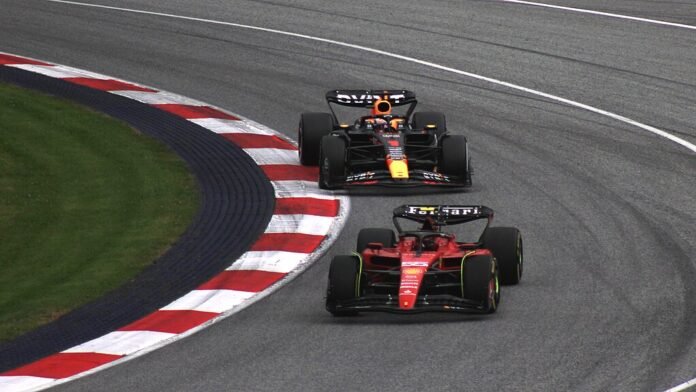Mohammed Ben Sulayem considers softening fines for swearing after drivers decry free speech clampdown
Mohammed ben Sulayem, president of motorsport’s governing body, has hinted at backing down over his controversial crackdown on Formula One drivers swearing—just days before the Miami Grand Prix. His comments come after months of simmering tension and a rare show of unity among drivers, who slammed the FIA’s stance as heavy-handed and out of touch.
In a post to Instagram on Monday, Ben Sulayem said he welcomed “constructive feedback” and was open to making “improvements” to the penalties outlined in the FIA’s code of conduct, which covers everything from physical violence to political gestures and foul language.
“Humans make the rules and humans can improve the rules,” he wrote. “The principle of continuous improvement is something I have always believed in and is at the heart of all we do at the FIA.”
Embed from Getty ImagesThe statement marks a notable shift from the defiant tone he struck last year when he insisted that swearing had no place in motorsport. His campaign to penalise expletive-laced radio outbursts or interviews—sometimes with suspensions—sparked widespread criticism from drivers who argued that F1’s intensely emotional environment made such restrictions unreasonable.
Multiple drivers have pointed out that a sharp word shouted in the heat of battle is not the same as a calculated insult. Others have argued that non-native English speakers should not be penalised for words they may not fully understand. Some even called the rule culturally biased.
When announcing the initiative last year, Ben Sulayem quipped, “We’re not rappers, you know,” drawing a swift and serious rebuke from Lewis Hamilton, who described the remark as having a “racial element.”
Four-time world champion Max Verstappen also voiced strong opposition. “You don’t have a mic strapped to every footballer in a match,” he said. “Plenty of athletes say things in the heat of competition—it just doesn’t get picked up. If broadcasters want to use that for entertainment, that’s on them.”
Indeed, many in the paddock believe that networks air expletives deliberately to amplify drama—not to expose unsportsmanlike conduct. Verstappen has maintained that the issue lies more with the way F1 is broadcast than how its athletes express themselves.
There are early signs of a more lenient stance from the FIA. Earlier this year, Carlos Sainz swore during a press conference while protesting a separate fine—and walked away without punishment. The moment hinted that the governing body might already be softening behind closed doors.
Still, Ben Sulayem hasn’t proposed scrapping the rule altogether. His statement focused on “how punishments work,” rather than whether swearing should be sanctioned at all. That subtle distinction leaves room for debate—and further unrest if drivers don’t see meaningful change.
The issue comes at a delicate time for the FIA president, who has endured a rocky tenure marked by multiple stand-offs with top drivers and senior figures in the sport. With a potential re-election looming later this year, this partial climbdown may be an attempt to ease tensions before they explode on a more public stage.
For now, the sport holds its breath to see whether words—however colourful—will continue to cost its stars.
